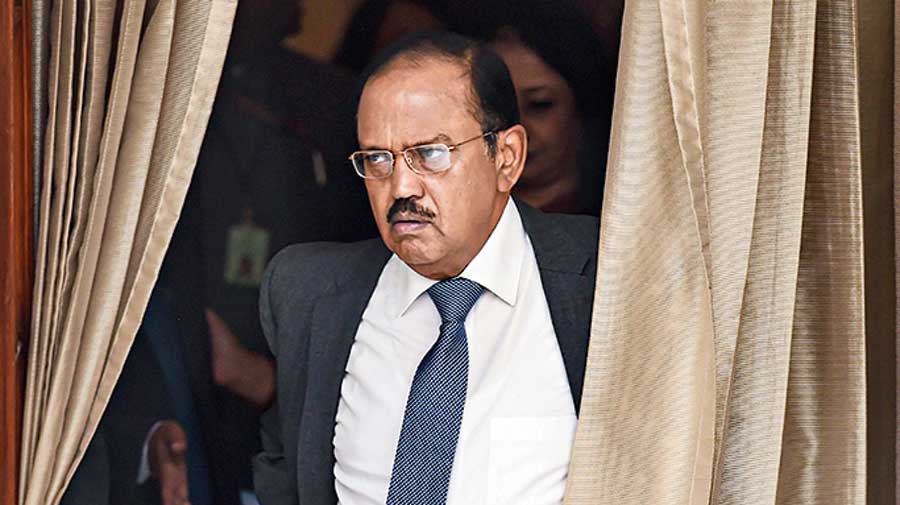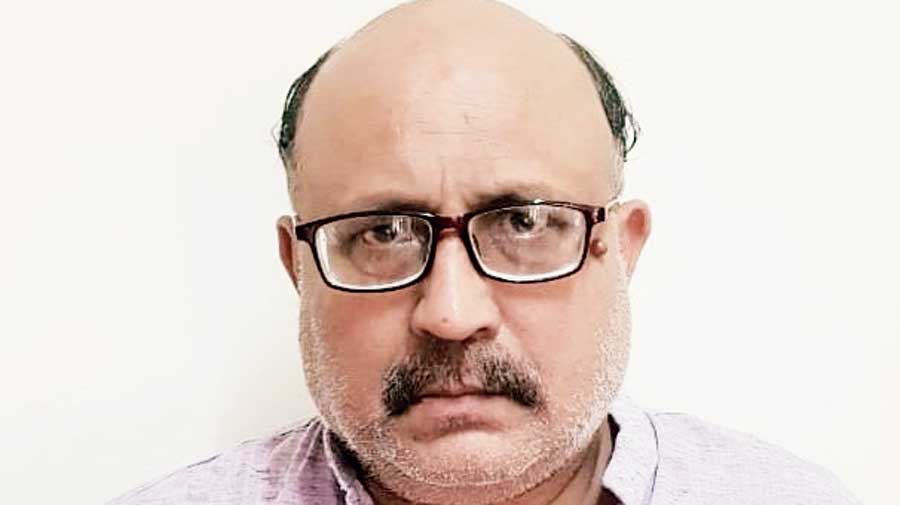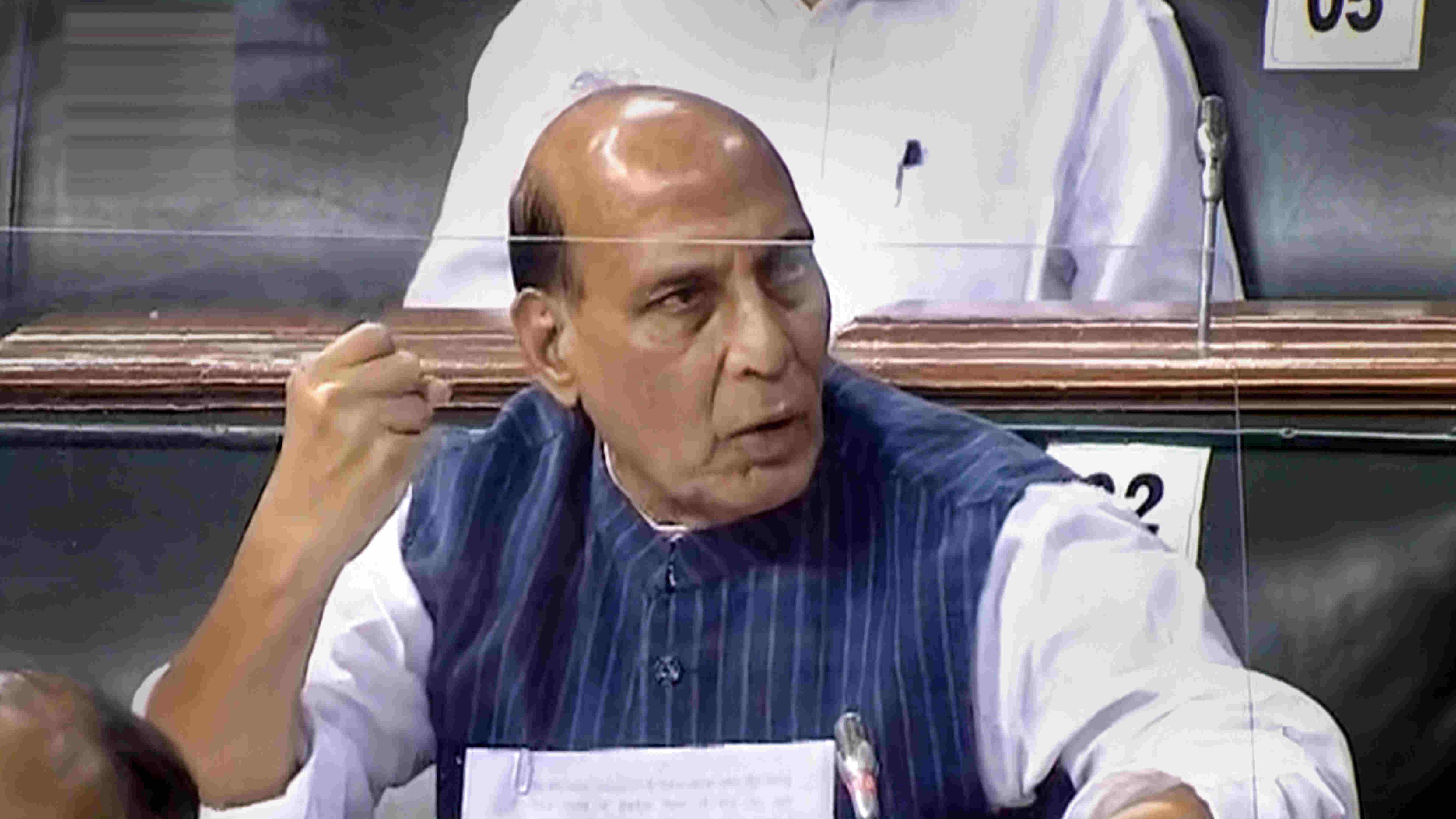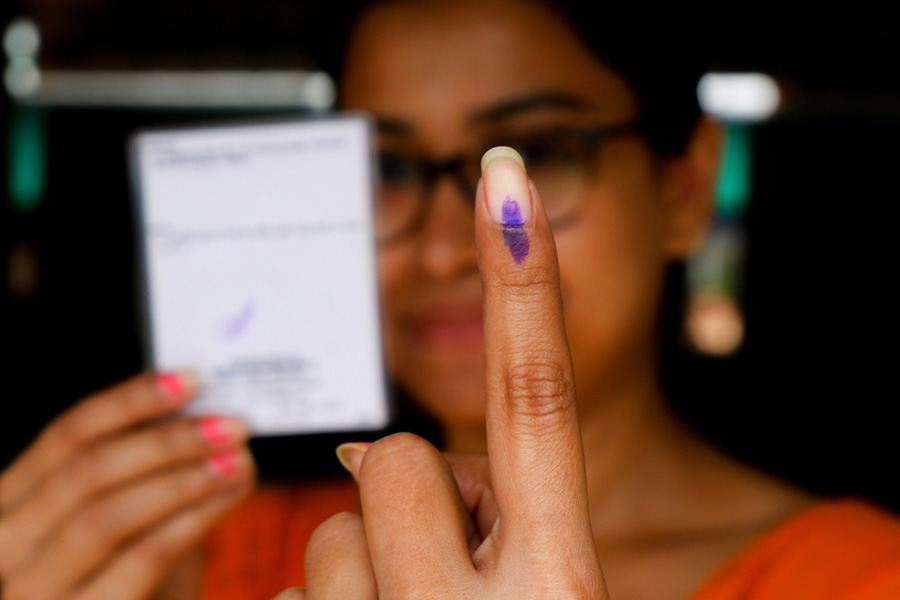The arrest of freelance journalist Rajeev Sharma on the charge of passing on “classified defence information” to China has thrown up one question at a time India is locked in the worst border crisis in decades with the neighbour.
“Sharma knew Ajit Doval (national security adviser) very well and the accredited journalist was very open about it. The logical question to be asked now: was the NSA not aware of his alleged illegal activities?” senior journalist Paranjoy Guha Thakurta, who had interviewed Sharma in November last year, told The Telegraph in response to a question on Sunday.
The question has wide national security implications. The claims made by Delhi police and the time-frame they listed on Saturday suggest that Sharma received cash from a Kunming-based Chinese handler, “George”, from January 2019 till September 2020 for information allegedly provided by the journalist.
The wording of the Delhi police statement does not make it clear when the information was passed on. If the charges are true and the alleged payment was not made for information handed over earlier, it would mean that classified information was being leaked from the government even at the height of the current border crisis in eastern Ladakh.
During the interview with Thakurta last year, Sharma had said: “I am unable to understand why I am under surveillance. I was told that the present government is doing this but I do not know why the government will do this since I am not involved in any anti-national or illegal activities.”
Sharma was in the news then because he was among those who had said their phone was under surveillance through an invasive Israeli-developed spyware called Pegasus. The Centre had denied it had anything to with the purported surveillance.
If Sharma was indeed under surveillance, it does not appear to have been very effective or the inputs were not taken seriously by the security establishment.
Untrammelled by such surveillance, Sharma, according to the Delhi police statement, managed to receive Rs 30 lakh in 10 instalments from his Chinese handler between January 2019 and September 2020 and had meetings with the handler in Malaysia and Kunming City (in China).
All these loose ends pose troubling questions before the national security apparatus headed by Doval.
Calls from this newspaper to Doval’s office were not answered on Sunday, a holiday. If and when the national security adviser comments on the subject, this newspaper will publish them.
In the November 2019 interview, a clip from which gained traction on social media on Saturday night after questions began to be asked about Sharma’s past association with a think tank linked closely to Doval, Thakurta had introduced Sharma as someone who had worked with Doval in the Vivekananda International Foundation for some time.
Besides, an article by Sharma published in 2010 on the rediff.com portal describes the writer as “senior fellow with the New Delhi-based think tank Vivekananda International Foundation” (VIF).
Yet, when The Telegraph phoned a senior official of the foundation on Sunday to enquire about Sharma, the official said: “I can’t recall his association with the VIF. Why are you asking me this?”
The VIF was set up in 2009 with Doval as its founding director. The VIF, which describes itself as an “independent, non-partisan institution”, is a project of the Vivekananda Kendra, founded in the early 1970s by former RSS general secretary Eknath Ranade.
The VIF has its office in Chanakyapuri, known as the diplomatic hub of the capital. The VIF’s website lists its “relationships” with multiple Chinese institutions/ think tanks that deal with strategic studies.
In 2011, the foundation had organised a seminar on corruption and black money, which was attended by Doval, the then VIF director, Baba Ramdev and Team Anna members Arvind Kejriwal and Kiran Bedi as well as several RSS ideologues.
Later, Anna Hazare and Ramdev began the much-publicised fast against corruption. The campaign ignited a massive protest and is said to have helped bring Narendra Modi to power in 2014.
If Sharma did pass on classified defence information, the question how he had accessed such intelligence has not yet yielded any convincing answer. Media reports quoting sources in Delhi police have suggested that Sharma accessed the information by giving the impression that he was collecting the data for his work as a journalist.
Inherent in such a theory is an assumption that the officials who reportedly gave the information to Sharma were aware that they were speaking to a journalist and the information was for publication. It is unlikely that any official would innocuously hand over classified information for publication.
“If the police disclosures are correct, they should also name who in the government establishment was providing him with highly sensitive documents. They should pinpoint those responsible in the security establishment,” a retired Intelligence Bureau director said.
Asked whether the investigators too are probing this angle, a senior Delhi police officer said: “We have nothing more to say now.”
Thakurta, the journalist who had interviewed Sharma, raised another important matter. “Sharma is an accredited journalist. It never struck me that he was a shady character. He wrote mainly on defence, security issues and foreign affairs,” Thakurta said.
A journalist is provided with an accreditation card by the Press Information Bureau after multiple layers of security checks, and it has to be renewed every year. If Sharma was indeed indulging in questionable activities, the accreditation process does not appear to have come across any red flags. If Delhi police’s charges turn out to be true, the efficacy of the accreditation process will face questions.













